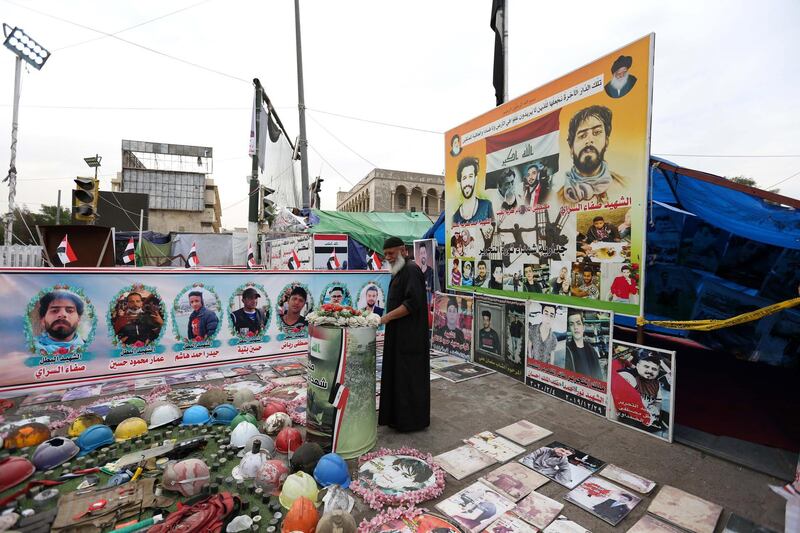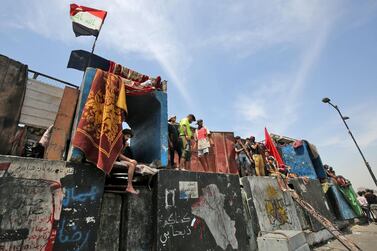Iraq said on Tuesday that it is to hold an "impartial and independent" investigation into the killing and kidnapping of hundreds of protesters.
The announcement came in response to a report published on Saturday by the United Nations Assistance Mission for Iraq that claimed hundreds of Iraqis were killed and dozens had disappeared, with many abducted, assaulted and tortured during months-long civil unrest that began in October last year.
“The Iraqi government confirms its commitment to human rights and international conventions. The government renews its support for an impartial and independent investigation to all the events mentioned in the report,” a statement by Prime Minister Mustafa Al Kadhimi’s office said.
وتؤكد الحكومة العراقية حرصها والتزامها بحقوق الانسان وكرامته واحترام المواثيق الدولية التي وقّع عليها العراق بهذا الخصوص.
— المكتب الإعلامي لرئيس الوزراء 🇮🇶 (@IraqiPMO) May 26, 2020
وفي هذا الإطار ، فإن الحكومة تجدد الالتزام بالتحقيق النزيه والمستقل في كل الأحداث المشار اليها في التقرير ، على وفق المنهاج الوزاري.
Thousands of Iraqis took to the streets of Baghdad and in southern Iraq to protest against corruption, unemployment, poor living standards and foreign interference. The mostly young protesters accused the political establishment of rampant corruption and demanded an end to a political system that is divided along sectarian and ethnic lines.
In response, the former prime minister Adel Abdul Mahdi resigned last November. Mr Al Kadhimi was confirmed as his successor this month after two other candidates were rejected by parliament because of differences among Iraq's political factions.
The UN said it had verified the deaths of 490 protesters and injuries to 7,783 others at demonstration sites.
The international body said it received 154 allegations of missing protesters and human rights activists "who were presumed to have been abducted or detained". It said it had verified 99 cases involving 123 missing persons. Of those, the government knew the whereabouts of 98, but said 25 remained missing or were of unknown status.
At least 28 protesters were "abducted in circumstances indicating that the perpetrators may be armed actors commonly referred to as ‘militia’," the report said.
Around 33 individuals were arrested and detained by Iraqi Security Forces and did not or could not contact their families during their detention and 37 individuals declined to share details about their cases, the report said.
Those interviewed said they were forced into vehicles by armed or masked men near the protest sites, or on their regular daily routes, with none reporting appearing before a judge.
The Iraqi Human Rights Commission said the UN's findings match their own documentation.
"Until March 17, according to our documentation and complaints we received from families of victims, the numbers match, around 153 were abducted or went missing and 98 of them are in the security unit's detention centres," Ali Al Bayati, a member of the commission told The National.
The 98 individuals in detention centres have been accused of committing crimes so most of them have been charged according to the Iraqi penal code,” Mr Al Bayati said.
“There are around 53 people missing, we don’t have any information about them and they are not in official detention centres,” he said.
Mr Al Bayati said that 25 individuals that were abducted by non-official armed groups have now been released.
The human rights official said there is a high risk that those abducted by the armed groups will have been subjected to torture and violence.
“What is important is for the judiciary to start a clear investigation about this and for the government to respect international conventions that Iraq have signed,” he said.
“There should be accountability for the criminals and there should be a compensation operation for the victims,” Mr Al Bayati said







